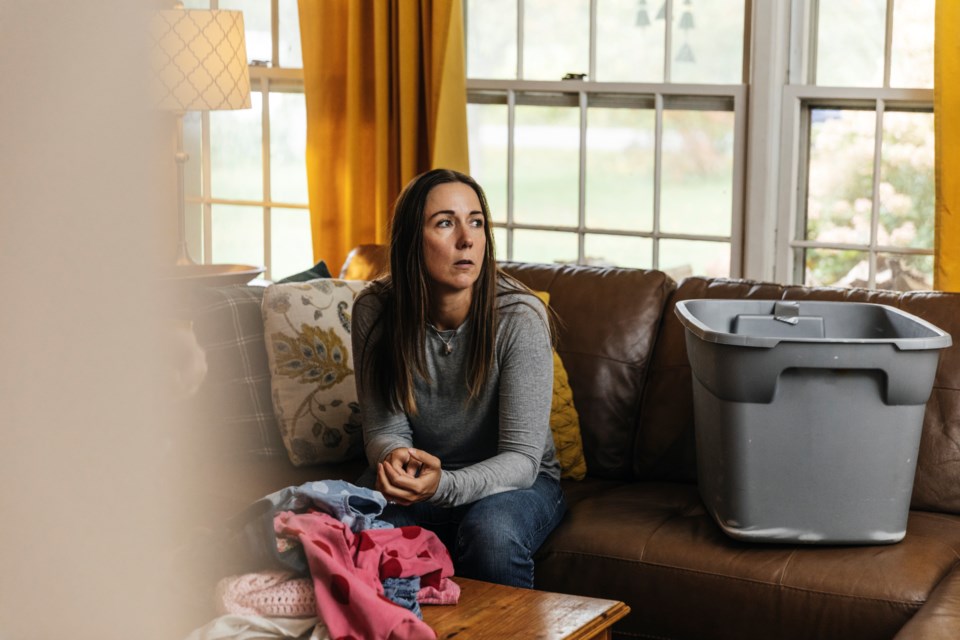Dear Ellie: I’m a young widow, 46, whose married stepson, 35, has been coming on to me, since a few months after his father tragically died in a car accident.
That was 20 months ago. I was his second wife, together for 14 years.
His children — the stepson mentioned, and his older sister — were adults when we met. I attended his wedding and like his wife. Now, his advances towards me are very disturbing.
He’s called several times after midnight, whispering because he’s in another room while his wife’s sleeping. He’ll call me while driving and say, suggestively, that he’d like to come over.
I’ve made repeated excuses why that’s not possible but I’m now increasingly uncomfortable. I don’t want to hurt him. I know his history. He was a disappointment to his father for having caused some serious trouble though he later resolved it. But they were never again close.
He was very helpful to me after the accident — the funeral, all the needed documents, will settlement, etc. There were no disputes.
He keeps trying to visit me alone. Should I tell his wife? I’ve held back because I fear it’d end his marriage. But I’m anxious that he’ll appear at my door and it’ll be ugly.
Suggestive Stepson
If you think he presents a danger to you, be clear that you don’t trust his intentions and, if he persists, you’ll get a lawyer’s letter sent to have him cease attempts to be alone with you. (That letter can then be shown to police, for a quick response if you alert them).
The gentler route is to tell him that he needs what I call “grief and guilt” counselling. Say that you don’t want to see him at all, unless he begins the process of mourning his father’s loss and their relationship in which he caused his father pain and anger.
(I doubt that there are many adult children who’ve lost a parent and don’t feel sadness/responsibility/guilt for having caused distress to that parent who’s now gone forever).
Be firm that he needs to hear from an experienced psychotherapist or a psychologist or other grief specialist, just how inappropriate and upsetting his behaviour to you is, and how it does nothing to resolve his deeper issues.
If he won’t go for professional help, then consider going yourself, in order to discuss this situation and seek direction as to what’s your safest, most helpful way to get him to understand your discomfort, or end all contact until he stops seeking “alone” time with you.
FEEDBACK regarding the man who wrote to your column seeking “personal improvements” in his social behaviour related to women (Feb. 17):
Reader: “I’m a man who would say that the guy is already over halfway there.
“He is already battling the normal urges of a “hard-wired male.” I would suggest that he recognise and accept that he is a normal man with “two heads.” He should just keep placing the effort on ensuring his “large head” dominates. And just keep his “two-year-old” child in mind to help him be careful to not “cross any boundaries.”
“I’m a man who also struggles against sending out a “vibe” when working closely with an attractive woman.
“When this letter-writer feels that he may be getting “too close” to a female colleague, he should make some positive comment about his wife. That will definitely destroy any vibe he may inadvertently be sending out.”
Reader’s Commentary regarding a very gratifying and unexpected response to my column on seniors’ sex (Feb. 19):
“I am very touched by and grateful for your unexpected attention to my work. Writing Magnificent Sex: Lessons from Extraordinary Lovers was a labour of love for me and my former graduate student, now colleague, Dana Ménard, Ph.D.
“I have been fortunate to have a job as a sex therapist that’s meaningful and enables me to make a difference in couples’ relationships.
“Our team’s research since 2005 on optimal sexual intimacy has been, and remains, rewarding and joyful.
“It was originally inspired by the ideal role models — my parents’ marriage. It was a privilege to learn just by watching them as I grew up. I have also been blessed by a remarkable relationship with my beloved, who died before the book was published, but who continues to inspire me.”
Ellie’s tip of the day
Support and comforting words may soften someone’s grief. But, if their reaction is very worrying and long-lasting, professional help is needed.
Send relationship questions to [email protected].




